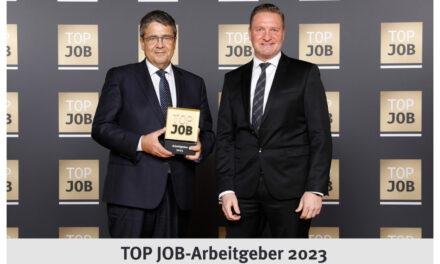Leading flat knitting solutions provider Shima Seiki Mfg., Ltd. of Wakayama, Japan, together with its Portuguese subsidiary Shima Seiki Portugal, UNIPESSOAL LDA, will participate in the 3rd edition of the MAQUISHOES Machinery, Technology and Accessories for the Footwear Industry Fair in Matosinhos, Portugal next month.
 The global shoe industry is adopting various textile and material technologies in footwear applications, especially in the area of fit, comfort and functionality. Working off the recent trend in knitted shoe uppers in the athletic footwear market, Shima Seiki proposes knitted fabrics to the general footwear market as an alternative to the prevailing material in this field—leather. To that effect Shima Seiki will be showcasing the latest applications of computerized flat knitting technology to demonstrate its contributions in this field. On display will be its compact SVR093SP machine specially developed for shoeupper manufacturing. SVR093SP features a dedicated loop presser bed mounted above the rear needle bed. This permits full use of inlay technique for the production of hybrid fabrics that feature both knit and weave characteristics, suited to shoe upper applications that require formfitting function, comfort, flexibility, breathability as well as strength and stiffness. Also on display will be the SWG091N2 Wholegarment® knitting machine featuring Shima Seiki’s original SlideNeedle™ technology. This largest of the SWGN2 series allows shoe uppers, socks, gloves, tights as well as other footwear and legwear to be knit in one entire piece without the need for sewing afterward.
The global shoe industry is adopting various textile and material technologies in footwear applications, especially in the area of fit, comfort and functionality. Working off the recent trend in knitted shoe uppers in the athletic footwear market, Shima Seiki proposes knitted fabrics to the general footwear market as an alternative to the prevailing material in this field—leather. To that effect Shima Seiki will be showcasing the latest applications of computerized flat knitting technology to demonstrate its contributions in this field. On display will be its compact SVR093SP machine specially developed for shoeupper manufacturing. SVR093SP features a dedicated loop presser bed mounted above the rear needle bed. This permits full use of inlay technique for the production of hybrid fabrics that feature both knit and weave characteristics, suited to shoe upper applications that require formfitting function, comfort, flexibility, breathability as well as strength and stiffness. Also on display will be the SWG091N2 Wholegarment® knitting machine featuring Shima Seiki’s original SlideNeedle™ technology. This largest of the SWGN2 series allows shoe uppers, socks, gloves, tights as well as other footwear and legwear to be knit in one entire piece without the need for sewing afterward.
 Shima Seiki’s new SDSONE APEX4 3D design system will also be available for demonstrations in design and simulation suited to shoe production. Of particular interest is APEX4’s ultrarealistic simulation capability that realizes Virtual Sampling. When countless variations must be evaluated before arriving at a final design, virtual product samples can be used to streamline the decision making process by minimizing the enormous amount of time and cost normally associated with producing actual samples for each variation. The sustainability factor is also undeniable considering the amount of material normally gone to waste in the sampling stage. APEX4 makes further contribution to this effort with programming and simulation processing speeds of up to 6 times that of the previous APEX3 system.
Shima Seiki’s new SDSONE APEX4 3D design system will also be available for demonstrations in design and simulation suited to shoe production. Of particular interest is APEX4’s ultrarealistic simulation capability that realizes Virtual Sampling. When countless variations must be evaluated before arriving at a final design, virtual product samples can be used to streamline the decision making process by minimizing the enormous amount of time and cost normally associated with producing actual samples for each variation. The sustainability factor is also undeniable considering the amount of material normally gone to waste in the sampling stage. APEX4 makes further contribution to this effort with programming and simulation processing speeds of up to 6 times that of the previous APEX3 system.





















